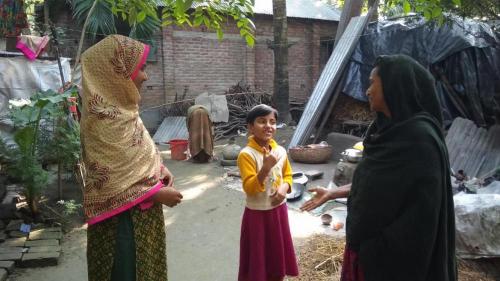he pandemic has been a tremendously difficult time for children and young people. The closure of schools for so long left many of them relying on Zoom calls, TV broadcasts and online classes to access their education.
This has led to unprecedented challenges, not least for those who find these lessons difficult to understand or don’t even have the devices to log on.
For deaf schoolchildren in the developing world, it can often be both, with the potential consequences both long-term and far-reaching.
With this in mind, Deaf Child Worldwide (DCW) commissioned a study to find out more about how the pandemic has impacted on the education and lives of deaf young people. Focusing on deaf schoolchildren in West Bengal and carried out in partnership with DCW’s partners in the region, it paints a bleak picture.
Online learning was simply not an option for them
Most deaf learners were able to access a smartphone to continue their learning remotely, but very few had access to a TV, the medium through which many government lessons were transmitted during the pandemic. Almost a third had no access to any devices at all, meaning online and hybrid learning was simply not an option for them.
To make matters worse, just one in five had any direct contact with a teacher. As a result, the majority of them were effectively cut off from their education for many months.
It became very clear to the researchers that NGOs – namely, DCW’s partner organizations - were having to step in and provide the support that deaf children had been lacking.
They achieved this through learning centers, which provided specialist teachers or qualified community members, often supported by community-based rehabilitation workers and deaf role models, to develop teaching materials and help with communication.











Add new comment